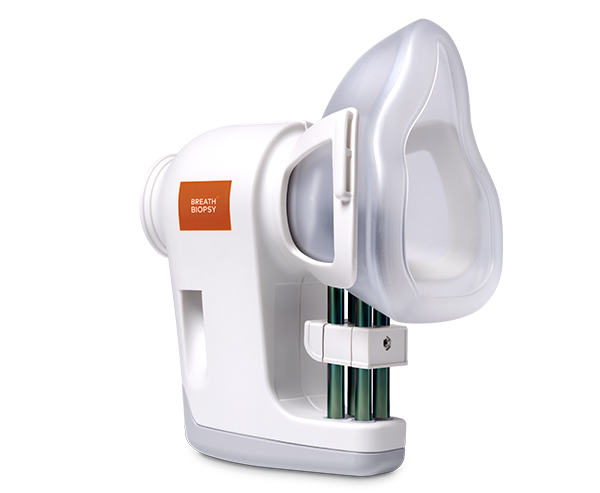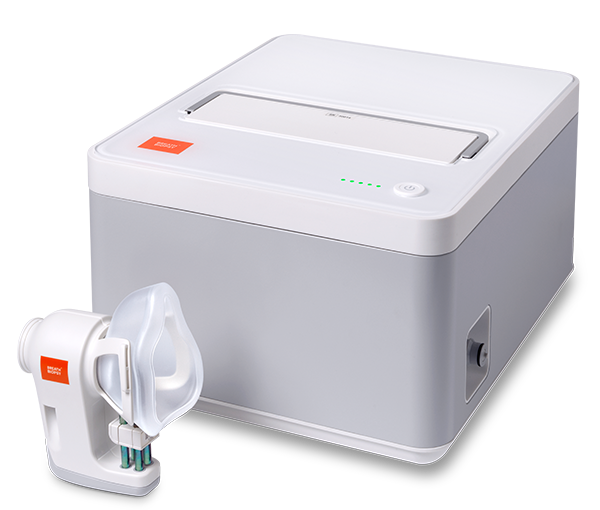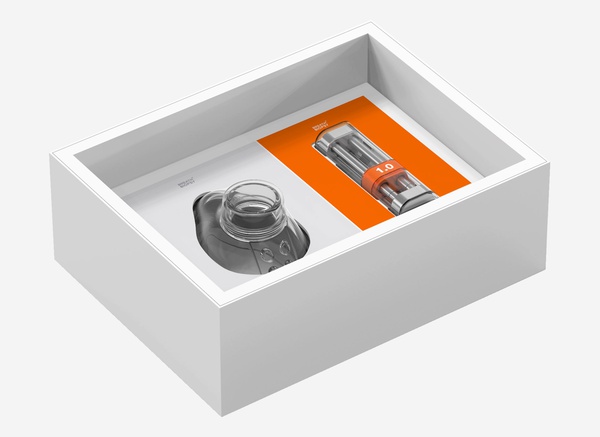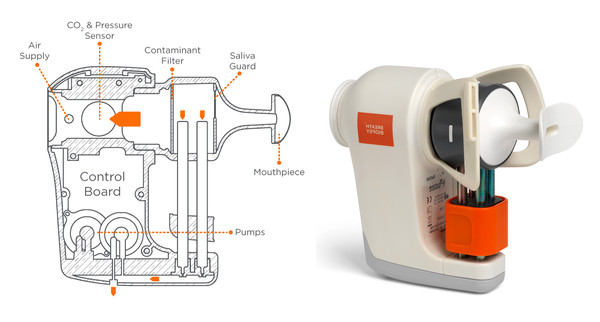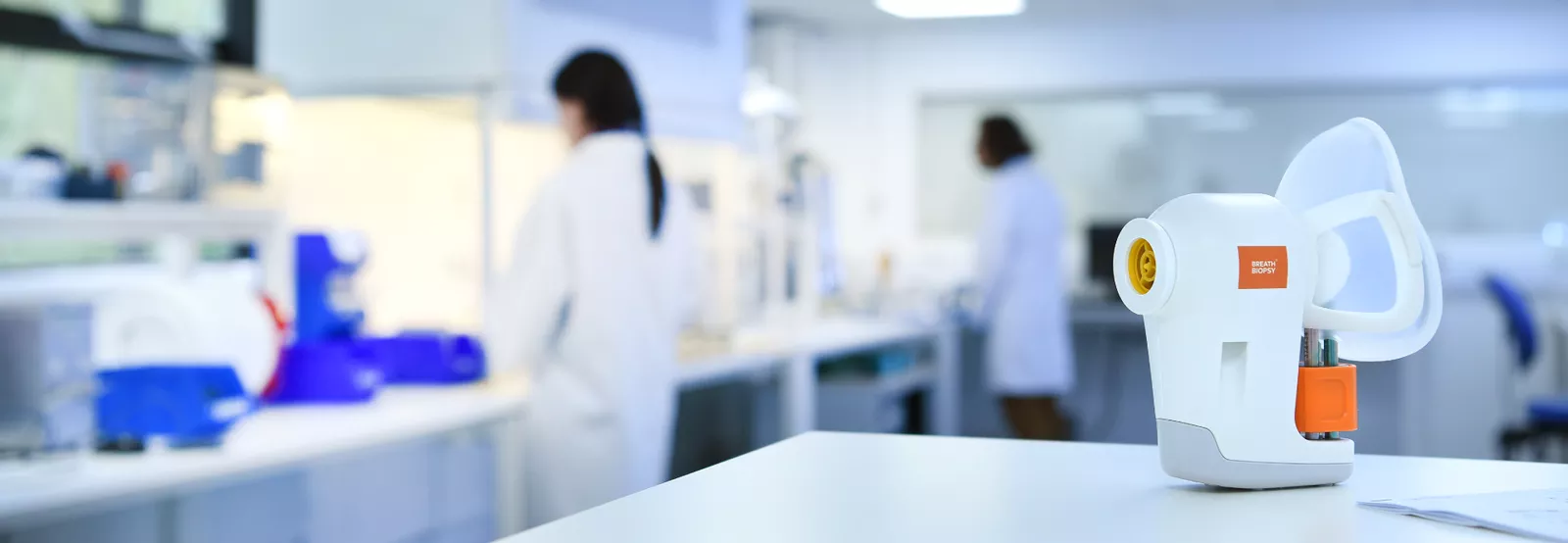
Reviews from our Partners
Discover how our partners and customers integrate our products and services into their research
Clinical Applications

Agnieszka Smolinska – Maastricht University
“I think, that using ReCIVA Breath Sampler made the collection of exhaled breath more standardised and more professional (in comparison to bags, which has been often used in the breath community). The exhaled breath samples obtained from ReCIVA are characterised with lower variations, thus allowing for better discovery of the compounds of interest, e.g. compounds specific to a disease.”

Andrew Bishop – Wake Forest University
“We are using breath analysis to ask a number of different scientific questions which have relevance for identifying non-invasive predictors of disease risks and evidence of harms, due to various environmental exposures. I am most excited about generating the pilot data that we can use to guide future research questions.”

Renelle Myers – University of British Columbia
“Through the ReCIVA, Owlstone gave us a collection device that’s well designed and easy to use – it made it easier for us to enter into the realm of breath research. Since then, we’ve has a lot of guidance and collaboration with Owlstone that’s really helped us get on our feet.”

Pedro Duarte Vaz – The Champalimaud Foundation
“My research in breath started when I joined my current role, although the techniques have been familiar to me for many years. Nevertheless, Breath Biopsy products make the approach easier by standardising procedures and enrolling in this challenge has prompted my career to tackle a topic, which will have a direct impact in saving lives. And that drives me!”

James Covington – University of Warwick
“One of the things that makes VOCs so appealing to me is the wide range of opportunities, from explosive detection and security applications to health and biomedical. For me, VOC biomarkers have the potential to make a real impact. If we can get one of these devices or tests into the clinical domain and it becomes a standard test, that would be the pinnacle of my career.”

Anke-Hilse Maitland-van der Zee – Academic Medical Centre, Amsterdam.
“Breath is very easy to collect. It’s a very non-invasive measurement, it doesn’t hurt. We do a lot of research in children, so it’s especially important to find non-invasive ways to collect information that you can repeat regularly.”
See our products in action.
- ‘A Proof-of-Principle Study in Propionic Acidemia – Discover Breath Biopsy® in Action‘ (Shchelochkov et al., 2025). This study investigated the VOCs present in breath of participants with propionic acidemia, and identified correlations with biochemical characteristics of the disease.
- ‘Development of a new breath collection method for analyzing volatile organic compounds from intubated mouse models‘ (Taylor et al., 2024). In this study, we developed a method for accurately characterizing the VOCs in the breath of healthy intubated mice. We also compared the VOCs found in mouse breath to human breath, which was collected using our ReCIVA® Breath Sampler
- ‘Exploring exhaled breath volatile organic compounds in occupational asthma: a pilot cross-sectional study’ (Heiro et al., 2024). This is the first known study to explore breath VOCs in subjects with occupational asthma (OA), aimed to identify potential biomarkers to distinguish OA from healthy controls, as well as between different OA subgroups. Exhaled breath was collected using our ReCIVA® Breath Sampler.
- ‘Advancing Breathomics through Accurate Discrimination of Endogenous from Exogenous Volatiles in Breath’ (Cen et al., 2024). This study aimed to enhance the potential of breathomics in various frontiers by categorizing exhaled volatile organic compounds (VOCs) as endogenous or exogenous. Exhaled breath was collected using our ReCIVA® Breath Sampler.
- ‘Discovery and Validation of a Volatile Signature of Eosinophilic Airway Inflammation in Asthma’ (Peltrini et al., 2024). This study investigated how VOCs in asthmatic breath may be associated with sputum eosinophilia. Exhaled breath was collected using our ReCIVA® Breath Sampler.
- ‘Identification of breath volatile organic compounds to distinguish pancreatic adenocarcinoma, pancreatic cystic neoplasm, and patients without pancreatic lesions’ (Tiankanon et al., 2024). This study investigated exhaled breath VOCs that distinguish pancreatic ductal adenocarcinoma (PDAC) from intraductal papillary mucinous neoplasm (IPMN) and healthy volunteers. Exhaled breath was collected using our ReCIVA® Breath Sampler.
- ‘Metabolic insights at the finish line: deciphering physiological changes in ultramarathon runners through breath VOC analysis‘ (Chou et al., 2024). This study investigated how VOCs can be used to study the effects of exhaustive exercise on the body. Exhaled breath was collected using our ReCIVA® Breath Sampler and analyzed using Breath Biopsy OMNI.
- Read more of our publications here.
Discover our research.
University of Cambridge
‘Breath Biopsy® Reveals Promising VOC Biomarkers for Early Detection and Monitoring of Acute Pulmonary Exacerbations in people with Cystic Fibrosis’

British Cancer Research
‘Assessing Inflammatory Response to Air Pollution via VOCs in Exhaled Breath’

Functional Gut Clinic
‘Changes in exhaled volatile organic compounds following iron supplementation in self-reported healthy adults.’
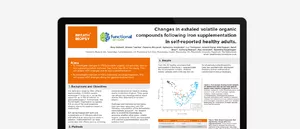
Boehringer Ingelheim
‘Development of a new breath collection method for analyzing volatile organic compounds from intubated mouse models’


